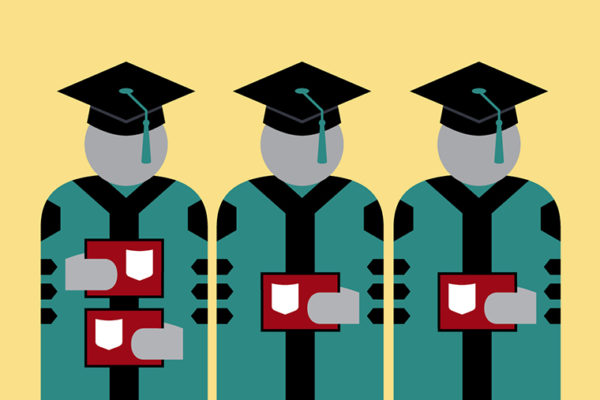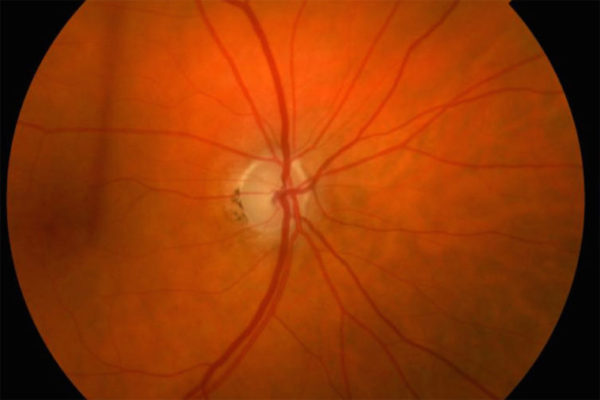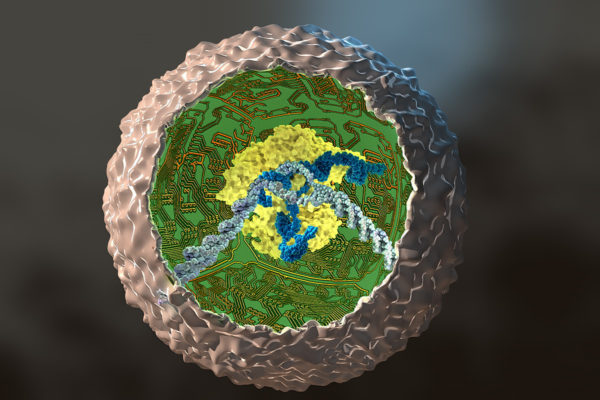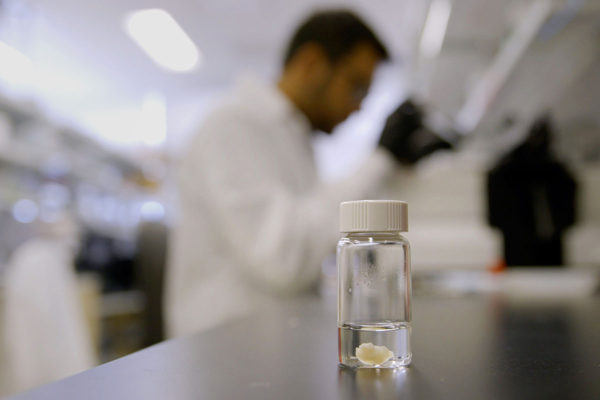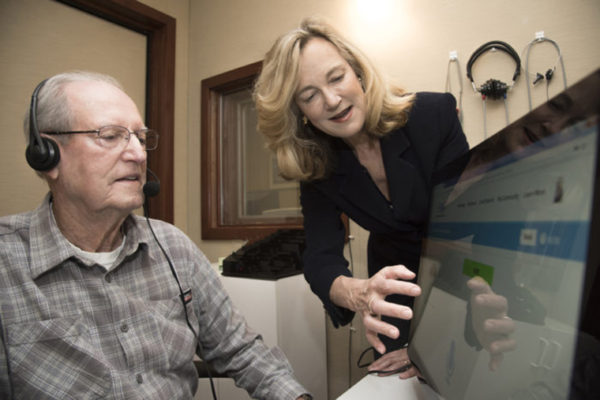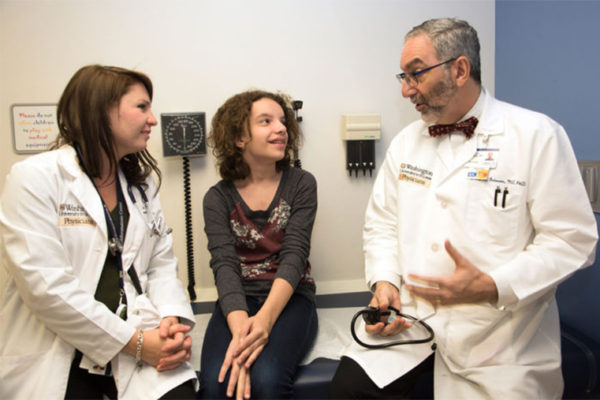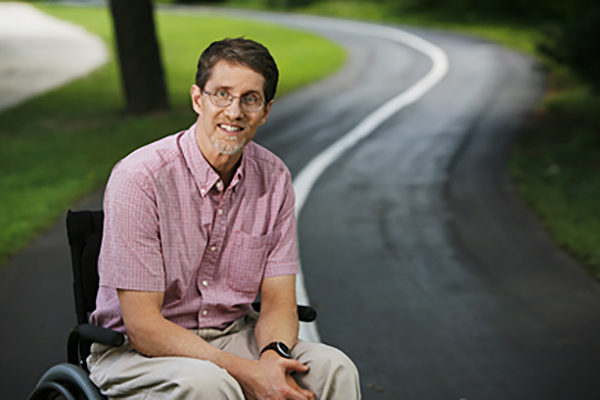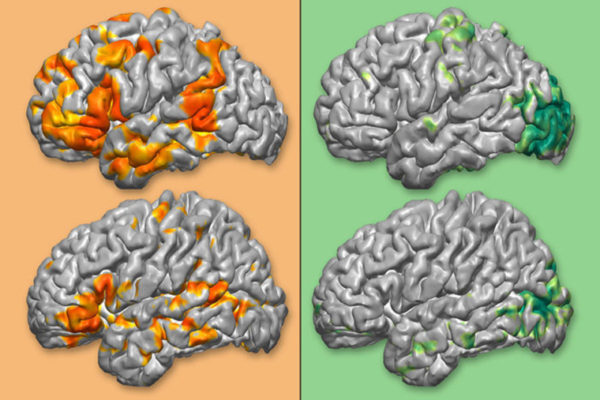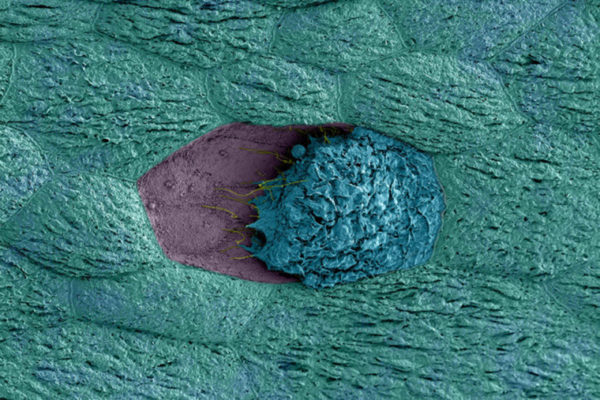Many Washington University medical students seek dual degrees
Nearly one-third of the 135 students graduating this month from the School of Medicine will receive more than one degree. Those 44 students also will have earned advanced degrees in fields such as public health, biology and business. The drive for dual degrees reflects burgeoning motivation among physicians-to-be, particularly those attending the nation’s top-tier medical schools.
Potential predictor of glaucoma damage identified
Researchers at the School of Medicine have identified a marker of damage to cells in the eye that potentially could be used to monitor progression of glaucoma and the effectiveness of treatment.
Stem cells edited to fight arthritis
Using new gene-editing technology, researchers at the School of Medicine have rewired mouse stem cells to fight inflammation caused by arthritis and other chronic conditions.
Antibody helps detect protein implicated in Alzheimer’s, other diseases
A team led by Washington University School of Medicine scientists has found a way to measure tau levels in the blood. Damaging tangles of the protein tau dot the brains of people with Alzheimer’s and other neurodegenerative diseases.
Patients with hearing loss benefit from training with loved one’s voice
To help people with hearing loss navigate their daily lives, Nancy Tye-Murray and colleagues at the School of Medicine have developed software tools to improve speech recognition. She launched a startup to provide the software to patients and professionals.
$3.5 million funds study aimed at applying precision medicine to rare tumor disorder
David H. Gutmann, MD, PhD, an international leader in neurofibromatosis research, received a $3.5 million grant to study why people with a genetic mutation that causes the genetic disorder known as NF1 develop markedly different signs and symptoms.
Brownson awarded $2.6 million grant for cancer research
Washington University health researcher Ross Brownson has received a five-year, $2.6 million grant from the National Cancer Institute of the National Institutes of Health (NIH) for a study examining poor implementation of cancer-control programs.
$3.6 million to fund personalized 3-D brain maps to guide neurosurgeries
A $3.6 million grant will fund a collaboration between School of Medicine researchers and the maker of a neurosurgery navigational system. They will create a software program to build personalized 3-D maps of the location of brain function.
Study reverses thinking on genetic links to stress, depression
New research led by the School of Medicine shows that an influential 2003 study about the interaction of genes, environment and depression may have missed the mark.
Vaginal bacteria can trigger recurrent UTIs, study shows
About half of all women will experience urinary tract infections in their lifetimes, and despite treatment, about a quarter will develop recurrent infections within six months of initial infection. A new study at the School of Medicine has uncovered a trigger of recurrent UTI infections: a type of vaginal bacteria that moves into the urinary tract.
Older Stories
